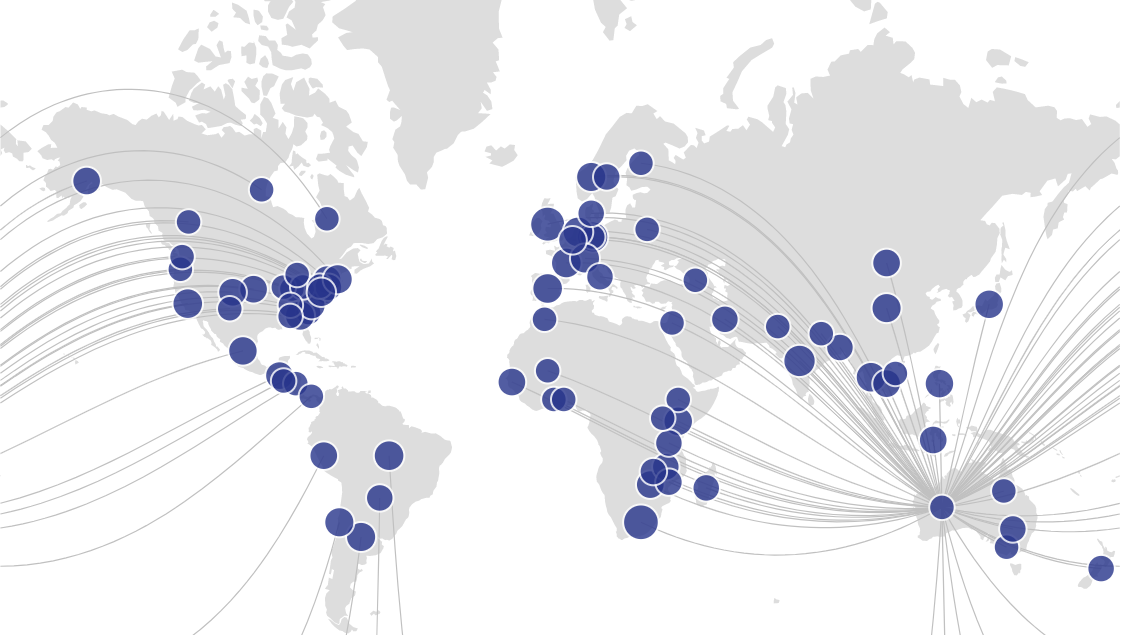
Our Research
Pushing the edge of our understanding
Our mission is to conduct world-class medical research for the prevention of infectious diseases.
Our Research Focus
Our teams focus on three key areas that address major issues facing public health today.
These major issues are:
- Rapid development of antimicrobial resistance in microbial pathogens and their spread around the world.
- Emergence of novel pathogens and the requirement for new diagnostic and therapeutic interventions.
Our responses
- Identification and tracing: genomics and epidemiology
- Reducing time to treatment: novel diagnostic technology
- Developing new treatments: novel intervention strategies
Genomics and epidemiology

Associate Professor Allison Imrie
and PhD student Melissa Koh
Infectious diseases are continually evolving the means to escape treatment by antibiotics or vaccination. New emerging infections such as SARS CoV-2 and African swine fever are threatening the stability of the world economy in devastating ways. To assist the global responses to these issues, our experts use cutting-edge technologies such as sequencing and bioinformatics to understand the epidemiology of these diseases.
Understanding epidemiology enhances our ability to understand which control measures by public health are the most effective at suppressing the spread of infectious diseases.
In the below video, you will find out more about the following researchers:
- Dr. Alfred Tay
- Dr. Daniel Knight
- Associate Professor Michael Wise
- Associate Professor Charlene Kahler
Novel Diagnostic Technology

Professor Barry Marshall, Dr Alfred Tay,
Dr Eng Guan Chua and Binit Lamichhane - Helicobacter Research Laboratory
The successful outcomes for treatment of infectious disease rely on rapid diagnostic tests necessary to accurately and sensitively detect pathogens in clinical samples. This requires the improvement of the technology being applied to the problem in an iterative way to ensure the assays remain appropriate for deployment in many settings, including diagnostic laboratories or in general practice in metropolitan or remote areas.
In the below video, you will find out more about the following researchers:
- Prof. Mark Nicol
- A/Prof. Samuel Lundin & Dr. Alma Fulurija
- A/Prof Chris Peacock & Dr. Calila Santos
- Dr. Josephine Muir
Novel Intervention Strategies

Dr Kate Hammer
and PhD student Kathryn Green
Antimicrobial resistant infections are predicted to be the most common cause of death in our hospitals in the next 30 years. We are also witnessing the emergence of novel infectious diseases, such as
SARS CoV-2, which require us to rapidly search for appropriate therapies to treat ill patients.
In the below video, you will find out more about the following researchers:
- Dr. Kate Hammer
- Dr.Mitali Sarkar-Tyson
- Professor Barbara Chang
- Dr. Lucy Furfaro
- Dr. Heng Chooi
- A/Prof. Charlene Kahler
Our Team
Our Global Network of Research Collaboration
Our research leaders have an extensive global network of collaborators, ensuring we have the necessary links to make an impact around the world.

